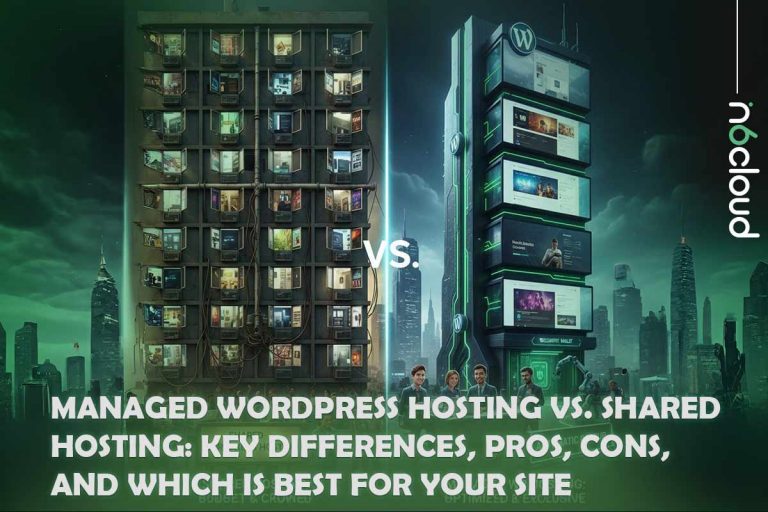In the vast digital world, a reliable and efficient web hosting provider is the cornerstone of any successful online presence. Whether launching a personal blog, an e-commerce empire, or a corporate website, choosing the right hosting provider can make all the difference in performance, security, and overall user experience. But with many options available, each boasting various features and promises, how do you navigate the sea of hosting providers to find the perfect fit for your needs? Fear not, for we are here to unravel the mystery and guide you to find the best hosting provider for your website.
Define Your Hosting Needs
Before searching for the ideal hosting provider, defining your hosting requirements is crucial. Consider the following factors:
- Website Type: Is your website a simple blog, an e-commerce platform, a media-heavy site, or a corporate portal? Different websites have varying needs regarding storage space, bandwidth, and processing power.
- Traffic Volume: Estimate the amount of traffic you expect to receive. High-traffic websites require robust hosting solutions such as dedicated servers or cloud hosting to ensure optimal performance.
- Technical Expertise: Assess your technical proficiency in managing hosting configurations. Some providers offer user-friendly control panels, while others may require more technical know-how for server management.
- Budget: Determine your budget for hosting services. Prices can vary widely based on the type of hosting, features, and level of support.
By clearly outlining your hosting needs, you’ll have a solid foundation to begin your search for the best hosting provider.
Types of Hosting Services
Understanding the different types of hosting services available will help you narrow down your options:
- Shared Hosting: Ideal for small websites and beginners, shared hosting involves sharing server resources with other websites on the same server. It’s cost-effective but may have limitations in terms of performance and resources. If you’re just starting out, N6 Cloud’s hosting services may be the right fit for you.
- Virtual Private Server (VPS) Hosting: VPS hosting offers a middle ground between shared and dedicated hosting. It provides dedicated resources within a virtualized environment, offering more control and scalability than shared hosting.
- Dedicated Server Hosting: With dedicated hosting, an entire server is dedicated to your website. This option offers maximum performance, customization, and control, making it suitable for high-traffic websites and large businesses.
- Cloud Hosting: Cloud hosting utilizes multiple interconnected servers to distribute resources and ensure scalability and reliability. It offers flexibility and cost-effectiveness, allowing you to pay for resources as needed.
Each hosting service type has advantages and limitations, so choose one that aligns with your website’s requirements and growth plans.
Performance and Uptime Guarantee
Reliability is paramount when it comes to web hosting. Look for providers that offer an uptime guarantee of 99.9% or higher. This ensures that your website remains accessible to visitors at all times, minimizing downtime and potential revenue loss.
Additionally, consider performance metrics such as server speed and response times. A fast-loading website improves user experience and boosts search engine rankings. Many hosting providers, such as content delivery networks (CDNs) and caching mechanisms, offer tools or features to enhance website performance.
Security Measures
Protecting your website and sensitive data from cyber threats should be a top priority. A reputable hosting provider should offer robust security measures, including:
- SSL Certificates: Secure Socket Layer (SSL) certificates encrypt data transmitted between websites and visitors, ensuring data integrity and confidentiality.
- Firewalls and DDoS Protection: Protection against malicious attacks such as Distributed Denial of Service (DDoS) attacks helps safeguard your website from downtime and data breaches.
- Regular Backups: Automated backups of your website’s data and files ensure that you can restore your website quickly in case of data loss or corruption.
- Security Updates: Ensure that the hosting provider regularly updates server software and applications to patch vulnerabilities and mitigate security risks.
Customer Support and Technical Assistance
Responsive and knowledgeable customer support is invaluable when you encounter technical issues or need assistance with your hosting service. Look for providers that offer 24/7 support via multiple channels such as live chat, email, and phone. Test their response times and expertise with pre-sales questions or hypothetical scenarios.
Additionally, consider the availability of resources such as knowledge bases, tutorials, and forums. These self-help resources can be invaluable for troubleshooting common issues and learning more about managing your hosting environment.
1.Scalability and Room for Growth
As your website grows, your hosting needs will evolve as well. A good hosting provider should offer scalable solutions that allow you to upgrade or downgrade your resources quickly. This flexibility ensures that your website can accommodate spikes in traffic, new features, and increased data without disruptions.
2.Reputation and Reviews
Researching hosting providers’ reputations and track records is a crucial step in the selection process. Look for reviews, testimonials, and case studies from other users to gauge the provider’s reliability, performance, and customer satisfaction.
Platforms like Trustpilot, HostingAdvice, and WebHostingTalk can provide insights into user experiences with different hosting providers. Pay attention to recurring review themes, such as uptime reliability, customer support quality, and value for money.
3.Cost and Value for Money
While cost is essential, choosing a hosting provider should not be the sole determining factor. Consider the value you receive for the price, considering the features, performance, security, and support offered. check out our web hosting service.
Compare pricing plans across different providers, looking for hidden fees or renewal costs. Some providers offer introductory discounts, so understand the long-term pricing structure to avoid surprises.
Recommended Hosting Providers
Now that you have a roadmap for finding the best hosting provider, here are some reputable companies to consider:
- Bluehost: Known for its user-friendly interface and affordable pricing, Bluehost offers a range of hosting options, from shared to dedicated servers. They provide excellent customer support and are recommended for beginners and small businesses.
- SiteGround: SiteGround is renowned for its top-notch customer service and impressive performance. It offers a variety of hosting solutions, including shared, cloud, and dedicated hosting, and focuses on security and speed.
- HostGator: HostGator is famous for its budget-friendly plans and reliable uptime. They offer a wide range of hosting options, from shared to VPS and dedicated servers, suitable for businesses of all sizes.
- N6 Cloud: N6 Cloud stands out for its innovative cloud hosting solutions, which provide scalability, reliability, and performance. Focusing on customer satisfaction and cutting-edge technology, N6 Cloud offers tailored hosting packages for various needs.
- A2 Hosting: A2 Hosting boasts turbo servers for blazing-fast website speed and excellent uptime reliability. They offer various hosting options, including shared hosting, VPS, and dedicated servers, and they offer exceptional customer support.
In Conclusion
Finding the best hosting provider for your website requires careful consideration of your hosting needs, types of hosting services, performance, security, customer support, scalability, reputation, and cost. By conducting thorough research, comparing options, and aligning your requirements with the provider’s offerings, you can make an informed decision that sets your website up for success.
Remember that the best hosting provider not only meets your current needs but also anticipates and supports your website’s growth and evolution in the dynamic digital landscape. So, embark on your quest armed with knowledge and confidence and discover the perfect hosting partner to propel your online presence to new heights.






